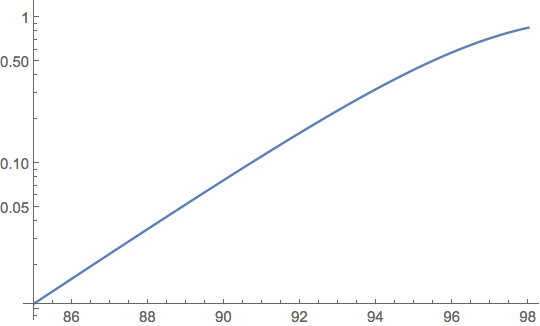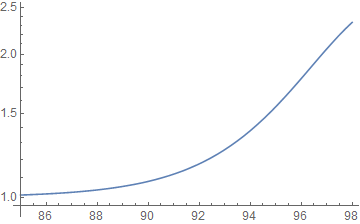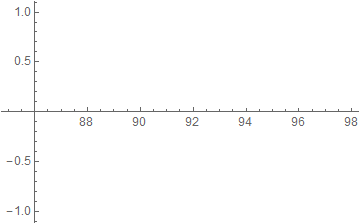I tried following command and it worked well (you can see the function is positive).
Plot[1 - x^(2^(n + 1)^a - 2^n^a) /. {a -> 1 - 1/10, x -> 1 - 4^(-30)}, {n, 85, 98}, WorkingPrecision -> 100]
But, I couldn't plot Log of this function:
Plot[Log[1 - x^(2^(n + 1)^a - 2^n^a)] /. {a -> 1 - 1/10, x -> 1 - 4^(-30)}, {n, 85, 98}, WorkingPrecision -> 100]
This shows only axes. I tried LogPlot, but it fails as well:
LogPlot[1 - x^(2^(n + 1)^a - 2^n^a) /. {a -> 1 - 1/10, x -> 1 - 4^(-30)}, {n, 85, 98}, WorkingPrecision -> 100]
Why Mathematica can't show log of this function?









LogPlotshowed something but wrong. This function must vanish as x decrease butLogPlotshowed that it approaches to 1 (Plot[1 - x^(2^(n + 1)^a - 2^n^a)] showed vanishing property). $\endgroup$LogbyRealExponent, it works. (RealExponent[..]is equivalent toLog[Abs[..]], though.) $\endgroup$